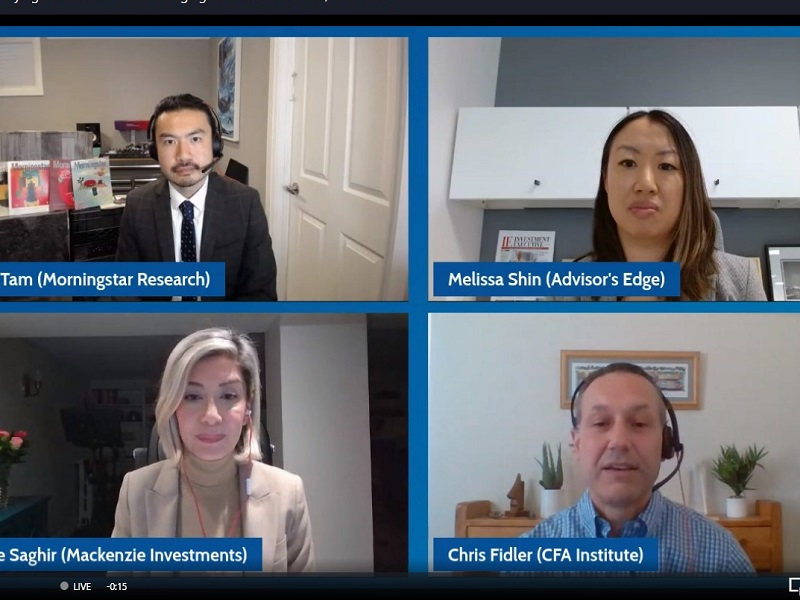
When a client has questions about sustainable or ESG investing, focus on the approaches used by the manufacturers, not the exact labels, advisors heard Friday during a Responsible Investment Association panel.
Chris Fidler, senior director of product management with the CFA Institute, advised financial advisors not to talk specifically about the many emerging responsible investing standards to their clients.
“The role of the advisor is to do that research and then be able to speak to their client in plain language. If somebody wants an efficient car, it doesn’t always help to explain how the engine works, because it just requires a lot of explanation for them to learn and interpret a lot of different concepts.”
Fidler was one speaker on Demystifying Disclosure: New & Emerging Standards from CSA, CFA & CIFSC, a panel held June 10 during the third RIA Virtual Conference.
The panelists discussed disclosure guidelines for responsible investing funds released both by the CFA Institute and the Canadian Securities Administrators, as well as the Canadian Investment Funds Standards Committee’s draft framework for identifying RI funds in Canada, for which comments are due June 15.
“It’s the advisor’s job is to map what is being said to the approaches being used. That’s where the meat is. So whether you call it responsible or sustainable or ESG – I think it’s important to focus on the approaches rather than the title,” said Ian Tam, director of investment research at Morningstar Canada.
“The value that advisors bring is to be able to assess these products in the marketplace and then select products that are most suitable, for what they know their clients need, and then explain it to their clients in the terms their clients can understand,” Fidler said.
Also on the panel was Fate Saghir, senior vice-president and head of sustainability with Mackenzie Investments.
“We mandate all of our investment teams to integrate ESG risk into their investment process. We don’t view ESG risk as something different from inflationary risk or interest rate risk. It has to be part of the same consideration,” Saghir said.
To evaluate ESG funds, clients need meaningful information but in plain language, Fidler said.
“What we are shooting for [with the new disclosure standards] is what I would characterize as a middle layer that gives investors the technical details that they need to determining if a product is right for them,” said Fidler. “Marketing materials are not sufficient because they speak in such broad general terms that they don’t give investors what they need to decide what product is right for them. There are legal materials that already exist, but unfortunately often times they are in legalese and they are hard for investors to interpret.”
The panel was moderated by Melissa Shin, editorial director of Advisor’s Edge and Investment Executive. Disclosure: both publications are media sponsors of the event.